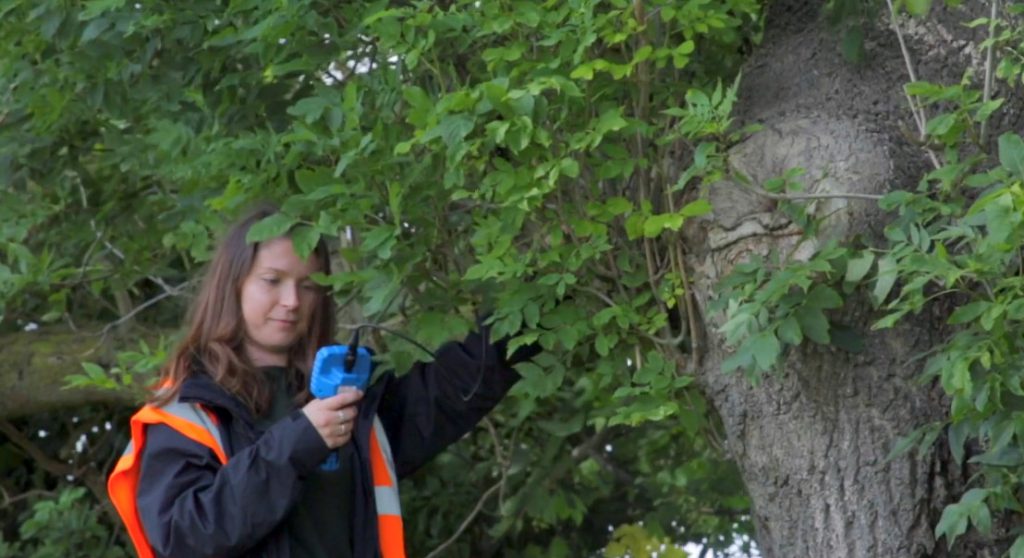Glasgow Bat Habitat Suitability
The largest city in Scotland and the third largest city in the entire United Kingdom, Glasgow is an urban area that features within the county of Lanarkshire. The city of Glasgow itself is widely known for countless things, such as contributions to architecture, culture and industry, as well as particularly notable influences on sport through the creation of two famous football teams and whisky through the presence of various distilleries. It was ranked first in a list of the UK’s friendliest cities, seeing it surpass the likes of Barcelona, London, Madrid and Paris.
A population density of 3,400 people per square kilometre makes Glasgow the most densely populated city in Scotland. Even though the city isn’t necessarily known for having an especially strong sense of biodiversity, over a fifth of the city’s total area is classed as green space, helped by such rural attractions as the Glasgow Botanic Gardens, Pollok Country Park and the Necropolis. Despite a limited selection of natural areas, habitat suitability remains viable for certain European protected species, with many of them residing comfortably all over Glasgow.
According to existing legislation, it is against the law to disrupt any of the many species of listed animals and plants. Several factors can dictate whether or not a protected species will appear in a given area, including available prey, opportunities for building a suitable habitat, and the climate. On the other hand, bats commonly roost all over the country and appear as a frequent obstacle to both land and property development projects. Predicted or proven bat occupancy will require a bat survey, and without it, an application for planning permission won’t even be considered by the local council.
Local Authorities Assembled to Protect Bats
Multiple organisations and groups are available in each location to provide support for bats in the chosen area. For example, assistance may include running talks to inform residents about bats, stepping in any time a resident needs help with a bat, and promoting the importance of helping bats in the local vicinity. On a wider scale, bats are defended by the Bat Conservation Trust (BCT) and other such organisations, but more closely, they are safeguarded in Glasgow by the Clyde Bat Group (CBG)
At any point that any issues arise surrounding bats in the Glasgow area, the CBG would be the place to go for assistance. On a day-to-day basis, the group will be active in educating the local community on matters relating to bats and bat roosts in the area. If you were to find an injured bat, want to learn more about bat populations, or have any questions about bats, the Clyde Bat Group would be well-positioned and able to step in and help.
Process for Surveying Bats
It is fairly common for developers to run into vast complications caused by an inability to detect obstacles early on. If great crested newts or any invasive species of plants, for example, were identified on a development site, the necessary protected species surveys would be needed before any work could take place. The same would happen with bats, so if prior ecological surveys have indicated the presence of bats or if the building simply could potentially house bats or bat roosts, sufficient bat surveys would be mandatory, starting with a preliminary roost assessment (PRA).
On a visit to the site, ecological consultants will inspect all areas for signs of bats, such as bats themselves, bat roosts, bat droppings, prey remains or features that could act as suitable housing for them. Providing the ecologist can categorically rule out bat occupancy, a bat survey report will allow the development project to continue. An inability to confirm that no bats are on the site, however, will trigger further bat surveys, namely a bat emergence and re-entry survey (BERS).
Differing from a preliminary roost assessment, a BERS can only be conducted between May and September, as it is considered the best time to achieve a full view of bats in the vicinity. At this time, multiple ecological surveyors will set up specialist equipment for monitoring suspected entry and exit points throughout the site. Data regarding bat populations and species can then be retrieved, contributing to their understanding of the site and allowing them to provide a comprehensive report to the local planning authority.
Once all PRAs and BERS have been completed, the ecologist in charge of the assessment process can produce a bat report that details their findings and offers in-depth measures that will enable the development to move into later stages. If other animals or plants are found during the process, the bat survey report may suggest other ecological surveys or additional protected species surveys. Whatever the outcome, as soon as all boxes are ticked and bat surveys are conducted, the ecological consultant should see no issue in encouraging the local planning authority to grant planning applications on the site.
Call Our Expert Team Today
In any development, our ecological consultants can act as an ecological clerk of works (ECoW) and use our extensive knowledge to undertake bat surveys and other ecological surveys to a sufficiently high standard. From preliminary roost assessments to bat emergence and re-entry surveys and beyond, our team caters to the entirety of the country, including Glasgow and other parts of Scotland, leaving no developer or homeowner without the necessary help needed to acquire planning consent.
You can receive a free consultation for a bat survey on your site by visiting our contact page, calling us, or filling out a quote form online. From there, we can record details about your development site in Glasgow and calculate exactly how much a bat survey would cost. If you decide to continue with Arbtech, let us know, and we can work out an adequate opportunity to undertake a bat survey on your development site and begin the process of assembling the necessary information required to appease the local council.


